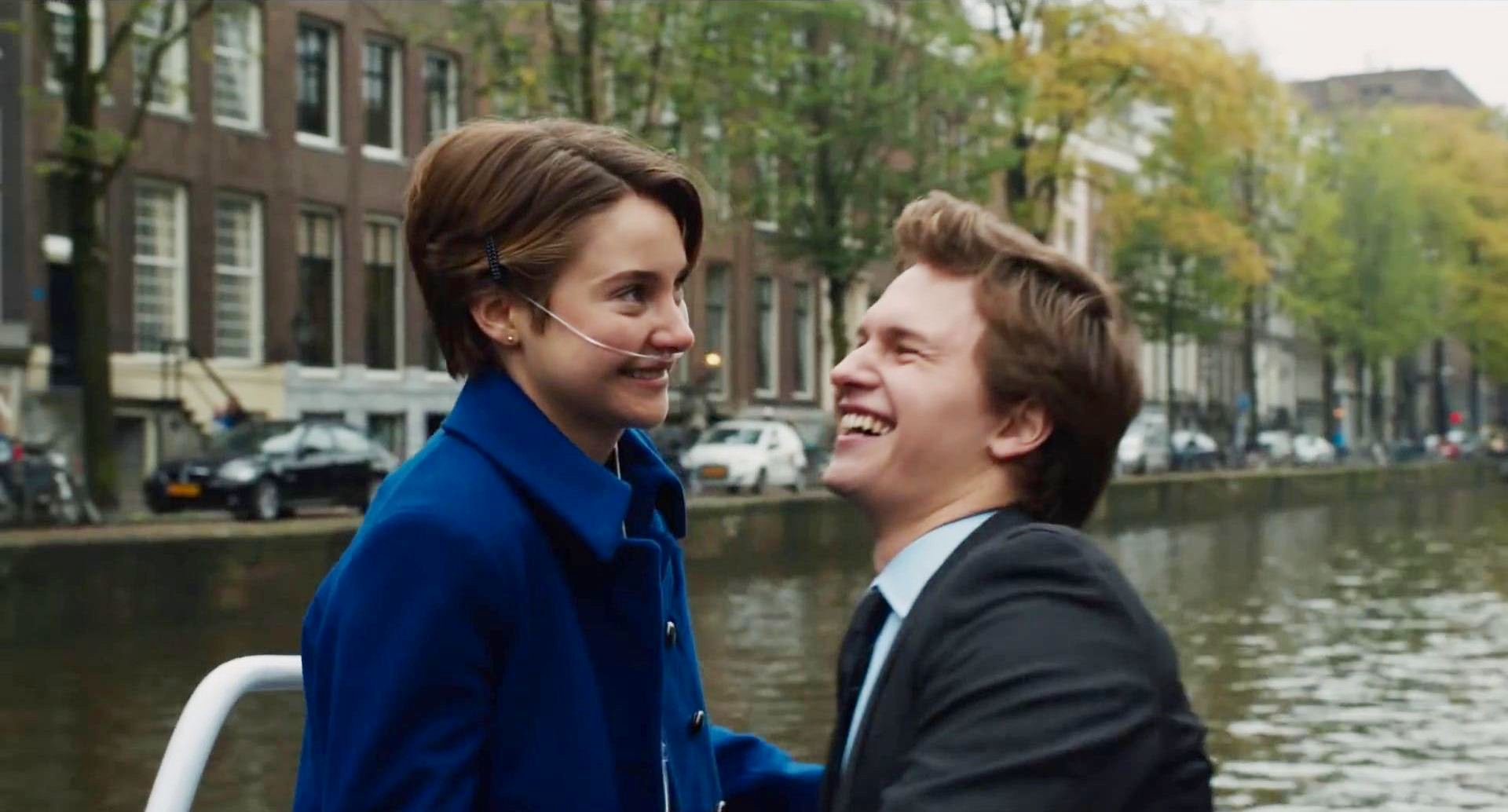Movies about cancer have that difficult line to walk between manipulative and serious. The Fault In Our Stars strays across both lines, but mostly walks the tightrope admirably. This teen cancer love story elevates above others in the genre because of the masterful work of Shailene Woodley, cementing her place among the young Hollywood elite. Jennifer Lawrence better watch herself.
Hazel Grace Lancaster (Woodley), a terminal cancer patient, reluctantly attends a support group because her parents (Laura Dern and Sam Trammell) think she’s a little depressed and want her to make friends. At said group she meets Isaac (Nat Wolff), an eye cancer victim, and Augustus ‘Gus’ Waters (Ansel Elgort), who has lost part of his leg. Augustus quickly enchants Hazel, and the two spark a relationship, bonding over Hazel’s favorite author (Willem Dafoe). Their brief journey lets them travel to Denmark, encounter the author, and learn about love before departing this mortal coil.
The Fault In Our Stars has a double tough task in that it has to tell a story in the two most manipulative movie genres: cancer stories and teenage romance. Smartly, the screenplay by teen romance vets Scott Neustadter and Michael Weber grounds the story with Hazel. She has lived on the edge for so long she laughs at the clichés of the inevitable and maturely deals with her fate. Her romance with Gus is the weaker story, mostly because Gus isn’t nearly as complex as Hazel. However, he is so damn charming it almost doesn’t matter. When cancer rears its ugly head, for the most part, The Fault In Our Stars keeps from being overly heart tuggy through removing the fear of death through the joy of living Hazel experiences.
That joy is the fortress that keeps relentless sadness from entering your soul for this star-crossed story. Hazel in the early going is callous and almost emotionless. Watching Gus drag her out of her shell state to feel something is a really fun experience. They bond over gallows type humor and text messaging, including how Disney World is a crappy wish. That bonding slowly grows into something special, with the two survivors getting back to living instead of just waiting for death. This character shift in purpose lessens the impact of death on the audience; since they know it is coming, they just want to see Hazel and Gus hit a stellar high. If they have to live with pain, they might as well enjoy a little happiness along with it.
The Fault In Our Stars’s glue is Shaliene Woodley, without whom the story falls apart. Her Hazel is mesmerizing: Woodley has these little tics that indicate her thoughts while not saying anything. A scene walking to dinner with Gus is great watching her look at him without him catching her doing so. Woodley’s highlights involve reading a eulogy as well as reacting to a late night phone call, in which she exudes emotional release with such a force that few actresses can match. Ansel Elgort tries to match Woodley, but is written one note. However, that one note is very charismatic: sparks fly when they share the screen. Nat Wolff is the comic relief as the blind friend, though he gets some nice beats; same goes for Laura Dern and Sam Trammell, thankfully playing caring if overprotective parents. Willem Defoe is a big minus here, playing a real jerk for manipulative purposes.
The Fault In Our Stars gives hope in the darkest of times. While not hitting the cancer movie benchmark 50/50, the Fault In Our Stars is smart and charming enough to be a worthy study of how to live on the edge of a knife on a day to day basis. By the midway point, you’ll find yourself smiling more than you should, because joy in the midst of such constant pain is a beautiful breath of fresh air.

